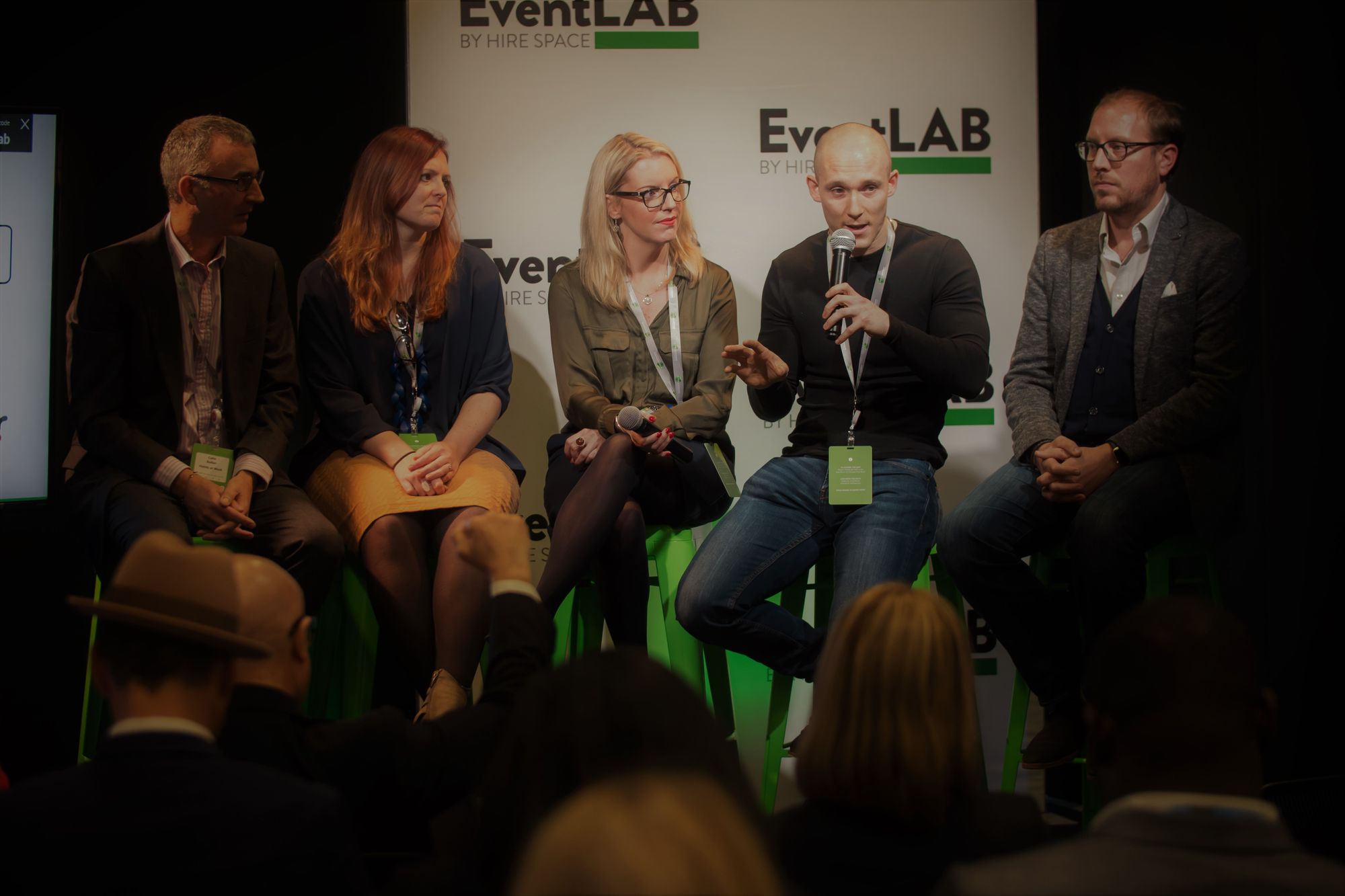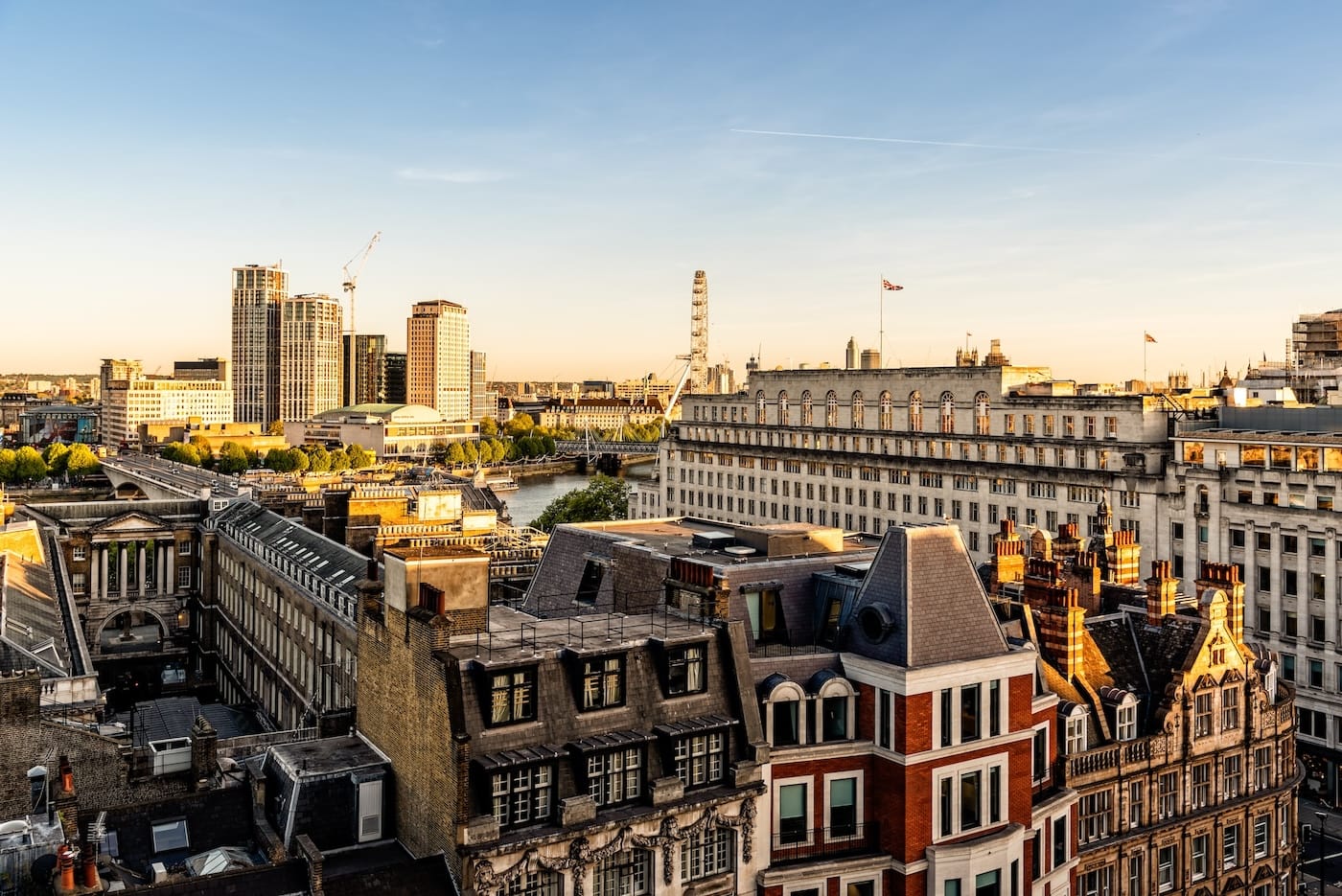The inaugural EventLAB event brought together some brilliant professionals from across the industry to discuss the problems faced by those working within it.
Over the next year, we want to delve a bit deeper into some of the issues raised, and something that is extremely important to Hire Space is the topic of wellbeing.
So, we'll kick things off with a brilliant panel discussion from EventLAB, chaired by EventWell co-founder Helen Moon, and look at some of the ways we can all help to improve wellbeing within our own workplaces and the industry as a whole.
The Panel:
- Samme Allen: Managing Director, Sequoia Partnership
- Colin Bullen: Consulting and Actuarial Lead, Habits at Work
- Lauren Capell-Abra: Consultant/Coach, No More Ifs or Buts
- Alistair Turner: Managing Director Eight PR, UK President ILEA
- Mark Maher: Events Director, Boulevard Events
So, what's the problem?
Helen began the discussion by asking the audience, 'Have you ever experienced burnout or stress due to your job?' and a flurry of hands went up.
I think it's safe to say that most of us have, to some extent, felt overworked and stressed-out but are unlikely to have done anything about it, whether that's talking to a manager or taking time off for your mental health.
What are the stats?
Courtesy of EventWell
- A career as an event co-ordinator was cited as the fifth most stressful of 2016.
- 1 in 3 event professionals will experience a period of mental ill health.
- 42% of employees have changed job due to stress, 75% have felt stressed in the past 12 months.
- Young people are more likely to experience stress than older generations.
- UK Event Professionals only rate their general wellbeing at 6 out of 10.
- In the UK, stress accounts for 45% of lost work days, and over 1.3 million people have suffered from workplace stress.
That's pretty frightening stuff, but EventWell also delved deeper into stats to find out what is so stressful about working in events.
Interestingly, the issues that emerged didn't relate directly to event planning, things like long and unsociable hours weren't what people were most worried about. Instead, many mentioned that they don't feel able to approach managers about the problems they face, relationships with coworkers and leadership teams, as well as pressure from top management were also cited as the things that caused the most stress.
Basically, workplace culture is stressing us out, big time.
Why is it so important to highlight mental health?
As you can see from the statistics, it's a problem that is extremely prevalent in the industry and one that has gone largely unchecked and unspoken about for a long time.
Stressful moments within a job are normal and we all have to work hard, but what the panel emphasised was that there has to be some balance. We need to open up the conversation about mental health and then take steps towards creating work environments that truly value and respect the wellbeing of their employees.
As Mark pointed out,
"I hear people talking about working 16 hour days...it's almost like we wear it as a badge of honour and that really shouldn't be the case."
The panel all agreed that work shouldn't be about how much time you spend at your desk. 20% of people in the industry work 60+ hours a week and many have been made to feel bad for asking for flexible working.
Colin was keen to point out that wellbeing isn't only in the interests of employees, it's hugely beneficial to employers too.
"The science is clear, if you're healthy and happy you produce more and work better."

Although they can manifest in physical ways, frequently mental health issues can go unnoticed, which also creates a problem. It can be much more difficult to conceptualise something you can't see, which can lead to misunderstanding and stigma, despite how common mental health issues can be. It's so important to break down barriers and begin to change the culture of the workplace and ultimately protect everyone's mental health.
So, what can we do about it?
We've compiled some top tips from the panel discussion that everyone can implement, whether it's in the workplace or at home.
- Open and honest discussion: Open the lines of communication between line managers, senior leaders, HR and employees. Everyone should feel comfortable talking about mental health and also have the skills to respond.
- Flexibility: Not everyone works in the same way, let your employees use their skills and adapt to the way they work. Provide clear objectives and measurable KPIs - focus on output and outcome, rather than when the work is being done. Flexible working is proven to reduce stress and the number of sick days that are taken.
- Leadership: If senior management isn't having this discussion it's unlikely to happen organisation-wide. Leadership teams need to take the time to learn and then find the resources and seek advice and support to implement it.
- People: Put people at the heart of resourcing and speak to them about how to improve. They'll be more productive and happier; it's a much more sustainable way of working.
- Rest: Help your employees to take rest during the day or when they need it. Encourage real breaks away from computers, go for a walk, have team lunches that give employees a full hour off.
- Support: Look out for your peers, look at changes in behaviour that may be stress-related. It's important to support each other.
- Health body, healthy mind: Encourage healthy food instead of cake on birthdays, exercising together, organising yoga in the office; anything that gets people moving.
- Trust: Provide flexible working and trust that your employees will get their work done. If you've hired someone, you need to trust that they're getting the job done, in their own way.
- Turn it off: Don't be a slave to emails and the digital world! Turn off your notifications when you're not at work. Read a book, talk to a friend, go for a walk. Do whatever you need to do to switch off.
- Holiday: Use your annual leave, even if it's just for a duvet day; everyone needs a break. Some companies have even introduced unlimited holiday so employees can take a break when they really need it.
A huge thank you to our panel for their experience and insight.
Let us know your experience of wellbeing in the industry @EventLAB_HQ or @HireSpace - we'd love to continue the conversation.
If you'd like to find out more about EventWell visit eventwell.org.


